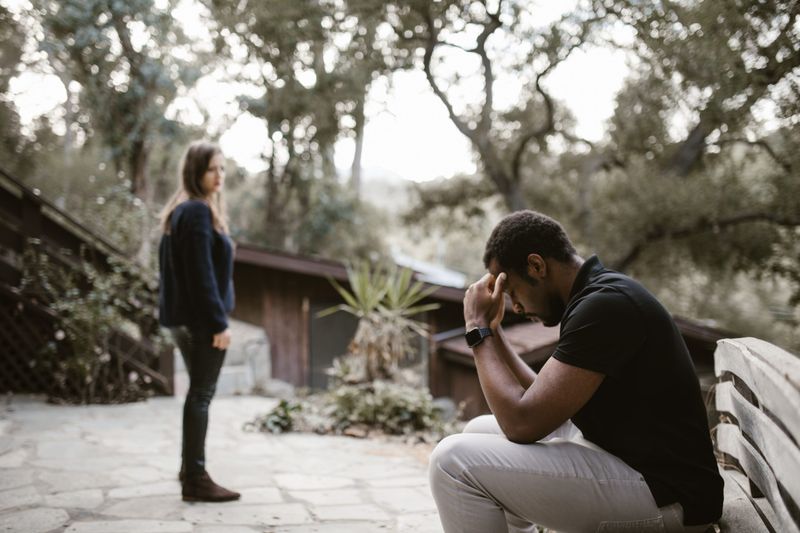12 Lessons I Learned About Relationship Boundaries in My 20s—And How I’m Doing Things Differently Now

Looking back at my twenties, I cringe at how much nonsense I tolerated from men. I confused drama with passion and settled for crumbs when I deserved the whole cake. Now that I’ve entered my thirties, I’ve drawn clear boundaries and raised my standards. Here’s what I’ll never put up with again.
1. Only giving the bare minimum

Remember that guy who’d text once a week and expect me to be grateful? I’d celebrate the tiniest gestures like they were grand romantic statements. A last-minute dinner invitation felt like winning the lottery.
My bar was set so low it was practically underground. I convinced myself that asking for more made me ‘high maintenance’ or ‘needy.’ The truth? Basic respect and consistent effort aren’t optional extras in a relationship.
These days, I recognize that someone who truly values me won’t make me question my worth. The bare minimum isn’t romantic—it’s just lazy.
2. Ghosting and reappearing months later

He’d vanish without explanation, leaving me anxiously checking my phone. Then, like clockwork, he’d resurface with a casual ‘hey stranger’ text at 11 PM on a Friday. The worst part? I welcomed him back every time.
I’d ignore the fact that he treated me like a backup plan because the brief attention felt better than nothing. Each reappearance reignited that false hope that ‘this time might be different.’
Now I know my peace of mind isn’t something to gamble with. When someone shows they can casually disappear from my life, I help them make it permanent.
3. Little or no ambition

‘He just hasn’t found his passion yet,’ I’d explain to friends about the guy playing video games in the same apartment he’d lived in since college. I mistook potential for achievement and confused dreams with actual plans.
I’d spend hours helping him update his resume or researching opportunities he never pursued. Meanwhile, I was building my own career, setting goals, and actually working toward them.
Today, I seek partners who match my drive. Not necessarily in income or career status, but in that fundamental desire to grow and evolve. Ambition isn’t just about success—it’s about having the courage to pursue something meaningful.
4. Ignoring my needs

Intimacy often ended when he did, leaving me with a fake smile and unfulfilled desires. I’d convince myself that physical affection wasn’t really important or that asking for what I wanted would make him uncomfortable.
I spent years believing my pleasure was secondary, optional, or too complicated to pursue. The embarrassment of expressing my needs seemed worse than the disappointment of going without them being met.
My thirties brought the revelation that mutual satisfaction isn’t just nice—it’s necessary. A partner who sees my pleasure as an afterthought is showing me exactly where I rank in their priorities.
5. Empty verbal plans

‘We should definitely go to that concert next month!’ he’d say enthusiastically. Yet somehow, when the time came, there was always an excuse. I collected these hollow promises like treasures, proof that exciting things were just around the corner.
I’d defend him to friends: ‘He really means it when he says it!’ The pattern was clear to everyone but me. Those grand plans were just easy ways to seem invested without actually committing to anything.
These days, I pay attention to actions, not announcements. Someone can paint beautiful pictures of the future with their words, but if they never pick up the brush, I’m not sticking around for the disappointment.
6. Treating me like an option, not a choice

‘I’ll let you know about Friday after I check what else is going on.’ Those words should have been a flashing red warning sign. Instead, I’d wait patiently, hoping to make the final cut in his weekend plans.
My schedule would remain open just in case he decided I was worth his time. I confused being easygoing with being a doormat. The men who kept me on standby knew exactly what they were doing—and so did I, deep down.
Now I understand that someone who values me will make me a priority, not a possibility. My time is precious, and I no longer reserve it for people who won’t do the same.
7. Mixed signals

One day he’d introduce me to his friends, the next he’d question why I assumed we were exclusive. I became an expert at decoding text messages, analyzing response times, and searching for hidden meanings in casual comments.
Friends would ask if we were serious, and I’d reply with a complicated explanation about how it was ‘complicated.’ The truth was simpler: if I was confused about where I stood, it was because he wanted me to be.
In my thirties, clarity isn’t just preferred—it’s required. Relationships shouldn’t feel like solving a mystery where the clues keep changing. If someone wants me, I shouldn’t have to convince myself of it.
8. Emotional dumping without support

I’d listen for hours about his stressful job, family drama, and existential crises. My role was clear: provide unlimited emotional support while expecting nothing in return. When I needed the same, he’d suddenly remember an urgent errand.
I mistook being his unpaid therapist for emotional intimacy. The relationship felt deep because I knew his struggles, but the vulnerability only flowed one way. My own feelings remained bottled up, deemed too heavy or inconvenient.
True connection means reciprocity. I’ve learned that someone who only shows up for the good times or only takes without giving isn’t looking for a partner—they’re looking for an audience.
9. Poor communication

‘I’m fine’ was his answer to everything, even when he clearly wasn’t. I’d spend days tiptoeing around his unexplained mood shifts, trying to mind-read what I’d done wrong. Arguments would end not with resolution but with stony silence.
I accepted this communication breakdown as normal, even blaming myself for not being understanding enough. Hours spent analyzing his one-word texts left me emotionally exhausted and constantly insecure.
Healthy communication isn’t a luxury—it’s the foundation everything else stands on. My patience for emotional guessing games expired with my twenties. Either we can talk about issues like adults, or we don’t need to talk at all.
10. Messy living spaces

‘He’s just not big on cleaning,’ I’d explain, stepping over piles of laundry to reach his bed. His bathroom was a science experiment, his kitchen a health hazard. Yet I’d stay over anyway, sometimes even cleaning up myself.
I ignored what his living space revealed about his self-care and respect for others. The bar was set so low that basic hygiene seemed like too much to ask. I’d bring my own towel rather than address the real issue.
A grown man capable of managing his living environment isn’t asking for perfection—it’s about basic responsibility. These days, I recognize that someone who can’t maintain their space likely can’t maintain much else.
11. Only seeing me when intimacy is on the table

‘Wanna come over?’ always translated to one thing, and it wasn’t conversation. Our ‘dates’ rarely happened in public, and somehow his invitations always came after 10 PM. I convinced myself this pattern was just casual dating.
I’d make excuses when friends pointed out I deserved more than being someone’s late-night option. Deep down, I knew the difference between being desired and being valued, but I settled for the former while craving the latter.
My worth isn’t measured by my availability for physical intimacy. In my thirties, I expect meaningful connection that exists in daylight hours and public spaces—not just behind closed doors when it’s convenient.
12. Uncertainty about what he wants

‘I’m not sure what I’m looking for right now,’ he’d admit, months into dating. I’d hear this as a challenge rather than a warning. Surely my patience and understanding would help him realize I was exactly what he needed!
I wasted years trying to prove my worth to men who openly told me they weren’t ready for commitment. Their honesty wasn’t the problem—my refusal to listen was. I stayed, hoping uncertainty would magically transform into clarity.
Someone who’s genuinely interested in building something meaningful won’t keep you guessing. I now understand that ‘I don’t know what I want’ actually means ‘I don’t want you enough to figure it out.’

Comments
Loading…